The Kaunas Jewish Community and concerned citizens again marked the anniversary of the Lietūkis Garage massacre of Kaunas Jews on June 27, 1941. Kaunas Jewish Community chairman Gercas Žakas hosted the event and recalled the blood-curdling events, actress Kristina Kazakevičiūtė read moving lines of poetry and the brothers Antanas, Stasys ir Rokas Makštutis performed on clarinet. Some of those turned out followed the traditional annual route to the Slobodka ghetto, the Ninth Fort and the old Jewish cemetery in the Žaliakalnis district of Kaunas, where it is believed the remains of the victims were buried.
Condolences
The Lithuanian Jewish Community expresses our deepest condolences on the death of the brother of Žana Skudovičienė. We grieve along with Žana’s entire family.
Joniškis White Synagogue Re-Opens
Re-Opening of White Synagogue in Joniškis
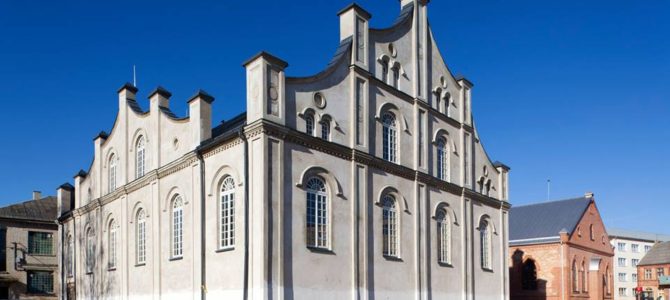
During celebrations of Joniškis’s own city day next week the restored White Synagogue there is to host a re-opening ceremony. The synagogue was built in 1823 and its external face combines features of the late classicism and romantic styles.
Restoration of the synagogue was financed by European Economic Area grants allocated by the Republic of Lithuania, the state budget and the Joniškis regional administration for a total of 389,358.35 euros.
Larger Lithuanian cities but even smaller towns often featured two synagogues, built at different periods. Few double-synagogue complexes are still standing in Lithuania, only in Joniškis, Kalvarija and Kėdainiai.
The Joniškis synagogue complex is located on the eastern side of the town square. Two adjacent brick buildings, the White and the Red Synagogues, form the complex. They were built at different periods and have different architecture and interiors. Their location by the central town square but set back among other buildings is fairly typical. They are very visible from side streets but looking from the main street they are blocked by other buildings. Both synagogues have smaller one-storey and two-storey buildings surrounding them.
Jews settled in Joniškis around the middle of the 18th century when charter rights were granted the cities of Joniškis and Šiauliai. Jewish communal life was intimately connected with religion and the synagogues. In 1797 the Jews of Joniškis received permission to build a synagogue and acquire a piece of land for a Jewish cemetery. A synagogue is first mentioned in 1823. According to the inventory of the Šiauliai economy conducted in 1825 and 1826, there were 49 Jewish families in Joniškis. In the mid-1800s there were 1,042 Jews living there. A second synagogue is first mentioned in 1865, and in 1866 there are records of a third synagogue and a Jewish inn. By 1897 the Jewish population had grown to 2,277. The third synagogue located at Vilniaus street no. 8 was turned into a store and residential building in 1965 and 1966.
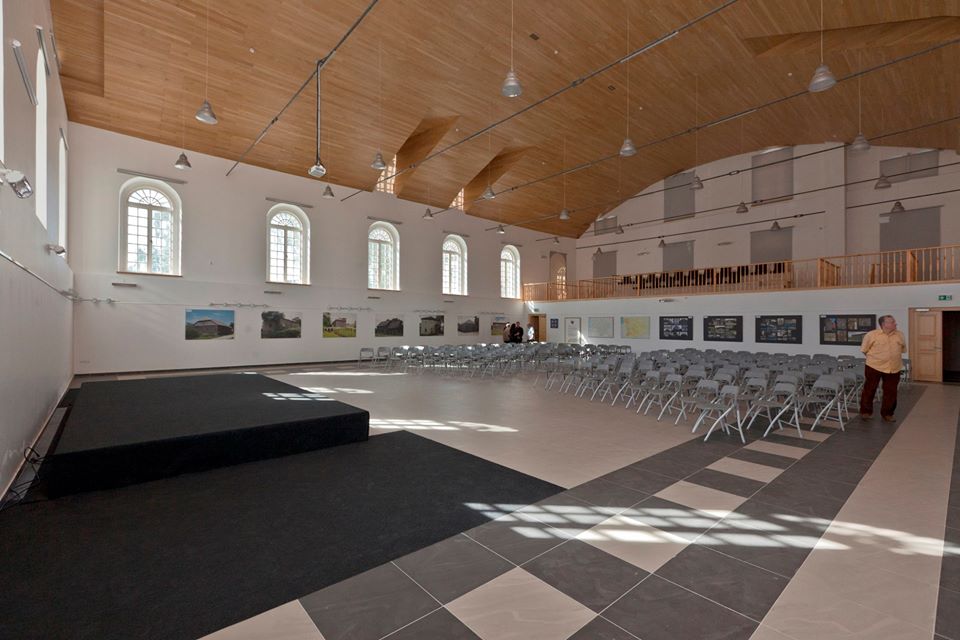
Jewish Community Proposes Cultural Museum in Vilnius Ghetto
![]()
Vilnius, June 27, BNS—The Lithuanian Jewish Community is proposing the creation of a cultural museum in the former Vilnius ghetto. There are considerations to include an open-air section beyond a single building housing the museum using modern technology. The LJC presented these ideas to Vilnius mayor Remigijus Šimašius Thursday.
Creative analyst Albinas Šimanauskas, one of the authors of the idea, said they hadn’t decided on a specific location for the museum yet, but there was a proposal to establish it near Rūdininkų square.
“Rūdininkų square, for example, where there is a statue commemorating Tsemakh Shabad, could be the site for a memorial to Righteous Gentiles. It’s a fine square which could host international events, concerts, thematic festivals… this would be a Vilnius Jewish cultural museum exhibiting historical events and cultural phenomena through living story-telling,” he told BNS.
Lithuanian Jewish Community chairwoman Faina Kukliansky said they are waiting for basic confirmation of the idea from the municipality and will decide on a location for the museum after that.
Lithuanian Jewish Community Now Member of the European Association for the Preservation and Promotion of Jewish Culture and Heritage


As of now, the Lithuanian Jewish Community is a member of the European Association for the Preservation and Promotion of Jewish Culture and Heritage, better known by the French acronym AEPJ. The AEPJ supports the preservation, appreciation and promotion of Jewish culture and heritage in Europe. The association is especially devoted to making Jewish cultural and heritage buildings and locations accessible to the public. To achieve that goal, the AEPJ conducts two main programs: the European Day of Jewish Culture and the European Jewish heritage tourism routes.
For more information, see here.
Catholic Priest Who Saved Jews Beatified
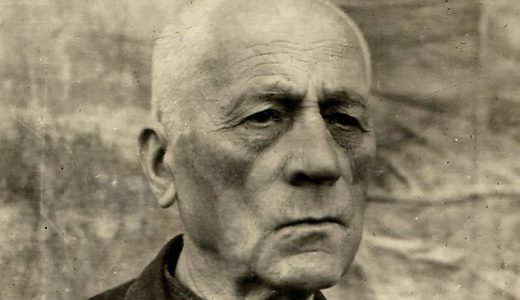
Vilnius, June 25, BNS—Archbishop Teofilius Matulionis, persecuted by the Soviets, was beatified and a ceremony was held to commemorate the event at Vilnius Cathedral Square Sunday.
The first-ever beatification ceremony held in Lithuania drew over 15,000 people where the Pope’s Franciscan envoy cardinal Angelo Amato made the announcement.
Matulionis was imprisoned for 16 years under the Soviets and he received his longest sentence in 1946 after refusing to collaborate with the Soviet regime in their demand he help squash the partisan movement in Lithuania and after criticizing the Communists for persecuting religious people. He was allowed to return to Soviet-occupied Lithuania after ten years of imprisonment. Although he was constantly followed, he was able to receive secret permission from the Vatican to consecrate bishop Vincentas Sladkevičius. Matulionis passed away in 1962 at the age of 89. Some believed he was poisoned by the KGB, although that hasn’t been demonstrated conclusively.
Matulionis becames the second person from Lithuania beatified. Bishop Jurgis Matulaitis’s beatification was announced in Rome in 1987. In order for Matulionis to be canonized, i.e., made a saint, evidence of a miracle must be presented, including those that occur posthumously, such as any which occur in invoking his name in a prayer to God.
Lithuania has a patron saint, Casimir, the grand duke of Poland and Lithuania who was canonized in 1602.
Teofilius Matulionis helped rescue a Jewish girl from the Holocaust. Dalia Epšteinaitė speaks about her childhood friend Estera Elinaitė whom he helped rescue.
Full story in Lithuanian here.
Commemoration of Lietūkis Garage Victims June 26 in Kaunas
The Kaunas Jewish Community invites the public to commemorate the victims of the Lietūkis Garage massacre at 5:00 P.M., Monday, June 26 in Kaunas. The commemoration will be held at the statue to commemorate the mass murder at Miško street no. 3 in Kaunas.
Restricted Access to Lithuanian Jewish Community
Due to danger to the public from falling bits of masonry, work will continue on the front portion of the Lithuanian Jewish Community building at Pylimo street no. 4 in Vilnius and the front doors will remain closed and off-limits. Staff and visitors must use the entrance to the Vilna Gaon State Jewish Museum at the same address and just to the right of the main doors until further notice from 9 to 5 on week days and from 9 to 3:30 on Friday, June 23. The Bagel Shop Café will remain closed until further notice and all weekend activities are cancelled inside the LJC building for the time being.
We apologize for the inconvenience.
Update: The front doors are now open again and the Bagel Shop is operating on its usual schedule.
Historical Attention to Historic Lithuanian Jewish Buildings
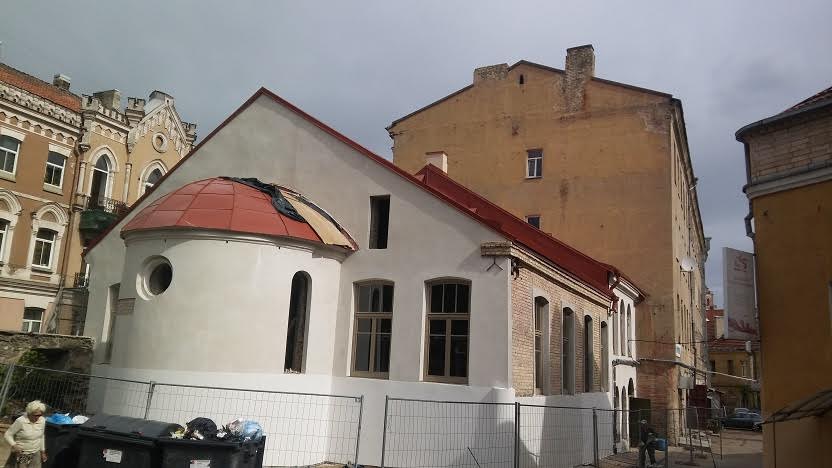
by Martynas Užpelkis, LJC heritage protection specialist
An historical event! In recent days, almost a coincidence of sorts but more likely the result of dedicated and constant preparation, three historical Jewish community buildings in Vilnius have been repaired and restored at the same time. In spite of the temporary convenience, our thanks go out to everyone who contributed to the preservation of these Jewish historical heritage sites.
Renovation on the synagogue on Gėlių street in Vilnius, the Zavl Germaize and David Levinson Synagogue, continues, but work has been completed on the façade and floor, and new doors and windows in line with the traditional ones were installed. The Lithuanian Jewish Community owns the building. The role of contractor for renovation work was carried out by the public sector Lietuvos Paminklai [Monuments of Lithuania] enterprise and renovation was conducted by the Nivara company. This year as in the foregoing three reconstruction work was financed by the Lithuanian state and the Goodwill Foundation. In 2017 the Cultural Heritage Department under the Lithuanian Ministry of Culture allocated 120,000 euros and the LJC contributed 16,000 euros allocated by the Goodwill Foundation.
June 22, 1941: It’s War

This is the story of fighter pilot Lida Litvak (Leu Volfovna). Lida was born in Moscow on August 18, 1922. Her father was arrested in 1937, tortured by Stalin’s regime and murdered. Lida became a professional pilot before the war. As a pilot and instructor, she became one of the first women to volunteer for service in the Soviet Air Force in response to an invitation from the famous pilot Marina Raskova.
After being graduated from the Kherson Military Pilots School, Lida, at the rank of sergeant, was deployed to a female unit and took part in the defense of Saratov. In September the slim, blonde pilot and several of her friends were transferred to Stalingrad where a special female military unit had also been formed. She flew a Yak 1 with the identification number 32 painted on its fuselage. They said she had the most success, and even called her queen of the fighter aircraft fighting on the southwestern front.
In March, 1943, after downing two German aircraft, she was wounded and taken to hospital, where she recovered and was released, returning to her squadron in May and earning the rank of lieutenant, after which she was transferred to the southern front. In July she flew two dangerous sorties, was again wounded and had to make an emergency landing. Her third sortie was the fateful one: after destroying two enemy aircraft on August 1, 1943, she came under fire, and only one of her other fellow pilots saw her plane disappear into the clouds. She was awarded the title of Heroine of the Soviet Union.
Scholar Aleks Veksler has a deep interest in and has done much research on Jews who fought on the fronts in World War II. In 1943 secretary of the Communist Part of the USSR Shcherbakov decided to limit presentations of medals to Jews for heroism on the front lines. At the same time the decision was made, shamefully, to “correct” names and surnames on lists of earlier awards. Jews fought Hitler’s army not just to protect the homeland, but also because they personal debts to repay to the Nazis who killed their people. Soviet Army leaders decided to undertake anti-Semitic measures against the Jews on the front lines because Jews were getting more medals than Russians. By then Stalin had already announced that it was Russians who had dealt the decisive blow against the fascists, but counting the number of Soviet military heroes, it was clear the majority of them were Jews. Soviet state leaders began to implement a horrible and shameful anti-Semitic line at the state level. By the end of the war the number of Jews who had been awarded the title of Hero of the Soviet Union was 167.
Veksler and former Soviet Red Army colonel F Sverdlov published books called In the Ranks of the Brave and Jews: Armed Forces Generals of the USSR. M. Shtainberg wrote a book called Jews in War over the Millennia. Their work has revealed the truth about Jews who fought in World War II and so resolutely for the State of Israel. Jews were never cowards.
Lithuanian Political Illusions: The “Policy” of the Lithuanian Provisional Government and the Beginning of the Holocaust in Lithuania in 1941
The Lithuanian Jewish Community is publishing a series of articles by the historian Algimantas Kasparavičius, a senior researcher at the Lithuanian History Institute.
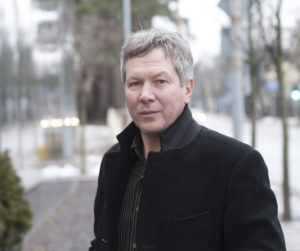
Part 5
At the beginning of summer in 1941 it wasn’t just the LAF political leadership in Berlin and the Provisional Government in Kaunas who adhered to a pro-German, pro-Nazi strategy for the restoration of Lithuanian statehood, but also some of the Lithuanian diplomatic service in exile. That includes, for a time at least, the head of Lithuania’s diplomatic corps, Stasys Lozoraitis, Sr. At least two facts bear testimony to Lozoratis’s questionable actions at the end of June, 1941. As early as June 23 the head of Lithuanian diplomacy then in Rome sent congratulations by special telegram to fascist Italy’s foreign minister Gian Galeazzo Ciano on the Nazi invasion of the USSR, and then tried, unsuccessfully, to meet the ambassador of the Third Reich in Rome, again, “to express congratulations on the war against the Bolsheviks”. [1] Lozoraitis was unable to congratulate the Nazi ambassador at the time because the Nazi official refused the meeting and wouldn’t receive the Lithuanian diplomat. The sources show this activity by Lozoraitis was the result of his conviction that “the replacement of the Bolshevik occupation by the German occupation is a great step forward for us in the direction of the restoration of Independence.” [2]
Bearing in mind that from the beginning of the summer of 1940 Germany and Great Britain had been engaged in an existential battle on land and sea in what became known to history as the Battle for Britain, [3] that beginning June 16, 1941, United States president Franklin Delano Roosevelt ordered all Nazi diplomatic representations in US territory shut down, that all of Hitler’s diplomats were expelled from the country and suspect people of German origin were imprisoned in special camps; and if we consider charismatic British prime minister Winston Churchill on the afternoon of June 22, 1941, in his address on BBC radio promised “we shall give whatever help we can to Russia and to the Russian people. We shall appeal to all our friends and Allies in every part of the world to take the same course and pursue it as we shall, faithfully and steadfastly to the end. We have offered to the Government of Soviet Russia any technical or economic assistance which is in our power and which is likely to be of service to them,” and pledged His Majesty’s government “are resolved to destroy Hitler and every vestige of the Nazi regime,” then we cannot pretend the actions by the head of Lithuanian diplomacy in those days was not at the very least strange and controversial.
In effect is proves Lozoraitis was unable in practical terms of orienting in a rapidly shifting situation and that he for some time naïvely swam in the wake of events dictated by the Third Reich. We cannot refuse to admit the policy of the remaining Western democratic world was headed in one direction and the policy of the head of Lithuanian diplomacy as well as of the Provisional Government in Kaunas was headed in the exactly opposite direction. If we fully understand the dichotomy of the political situation, of the vectors of international relations, can we feign surprise that Lithuanians abroad failed to form a government in exile during World War II, or at the political status into which Lithuania fell following the war?
Lithuanian Jewish Community Building Closed for Three Days
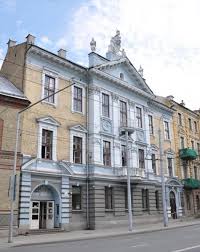
The Lithuanian Jewish Community building at Pylimo street no. 4 in Vilnius will be closed for repairs June 20, 21 and 22. No one will be admitted.
We apologize for the inconvenience.
Cipla Does It Again
India’s pharmaceuticals giant Cipla Ltd., headed by the son of a Lithuanian Jewish mother and who was born in Vilnius, is at it once again.
Known for their defiance of Western drug companies in the battle to provide cheaper medications to patients in poorer countries, especial HIV treatments, Yusuf Hamied’s company is now teaming up with the American Cancer Society and pharma corp Pfizer to provide sixteen anti-cancer medications including chemotherapeutics to sufferers in the sub-Saharan countries of Ethiopia, Rwanda, Uganda, Tanzania, Nigeria and Kenya in Africa.
Jusuf Hamied inherited the company his Indian father began in Bombay in 1935. The younger Hamied was born in Wilno July 25, 1936. His Lithuanian Jewish mother and Indian father Khwaja Abdul Hamied met in Berlin at the university where they were both doing graduate work. Originally based in Bombay (now Mumbai), Cipla Ltd. now has additional headquarters in Miami, Cape Town, Surrey (UK) and in Belgium, and manufacturing facilities in Goa, Bangalore, Baddi, Kurkumbh, Pune, Patalanga (India) and Sikkim, and field stations in Durban (South Africa), Hyderabad, Delhi and Pune.
Lithuanian Film Festival Features Experiences of Discrimination

Image courtesy Nepatogus Kinas
manoteises.lt
The Lithuanian documentary film festival Nepatogus Kinas [Uncomfortable Cinema] is to present a thematic program on discrimination this fall. To bring attention to how widespread this problem is, organizers are inviting people to share specific examples of the violation of their rights. The festival organizers are hoping their call to the public for personal experiences of discrimination will help break the existing wall of silence surrounding the subject. All examples provided, publicly or anonymously, will be presented to readers in the press and on social media.
“The word ‘discrimination’ often doesn’t mean anything, it’s an abstraction. But very specific personal stories are described by this word. Sometimes painful, sometimes inspiring. These stories allow us to realize we will all face discrimination at some stage in life,” festival director Gediminas Andriukaitis commented.
Lithuanian law forbids direct or indirect discrimination and harassment based on age, gender, sexual preference, disability, racial and ethnic identity, religion and beliefs. Uncomfortable Cinema organizers have also provided categories of language, social status, gender identity and family status for people who want to tell their stories.
Full story in Lithuanian here.
LJC Social Programs Department Staff Develop Skills at Warsaw Jewish Community
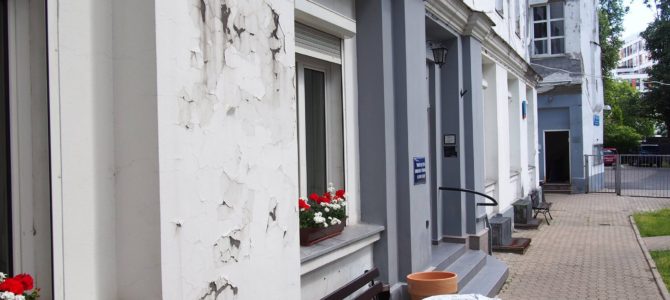
Staff from the Lithuanian Jewish Community’s Social Programs Department are currently visiting the Warsaw Jewish Community whose webpage is jewish.org.pl
The main community building is located in the center of the Polish capital with a Scandinavian-model kindergarten, a senior citizens day center and a kosher cafeteria adjacent to it.
Currently ten employees are building their skills set in Germany, France and Poland under the Erasmus + program in order to expand the social services network for the elderly and improve quality of services provided to clients.
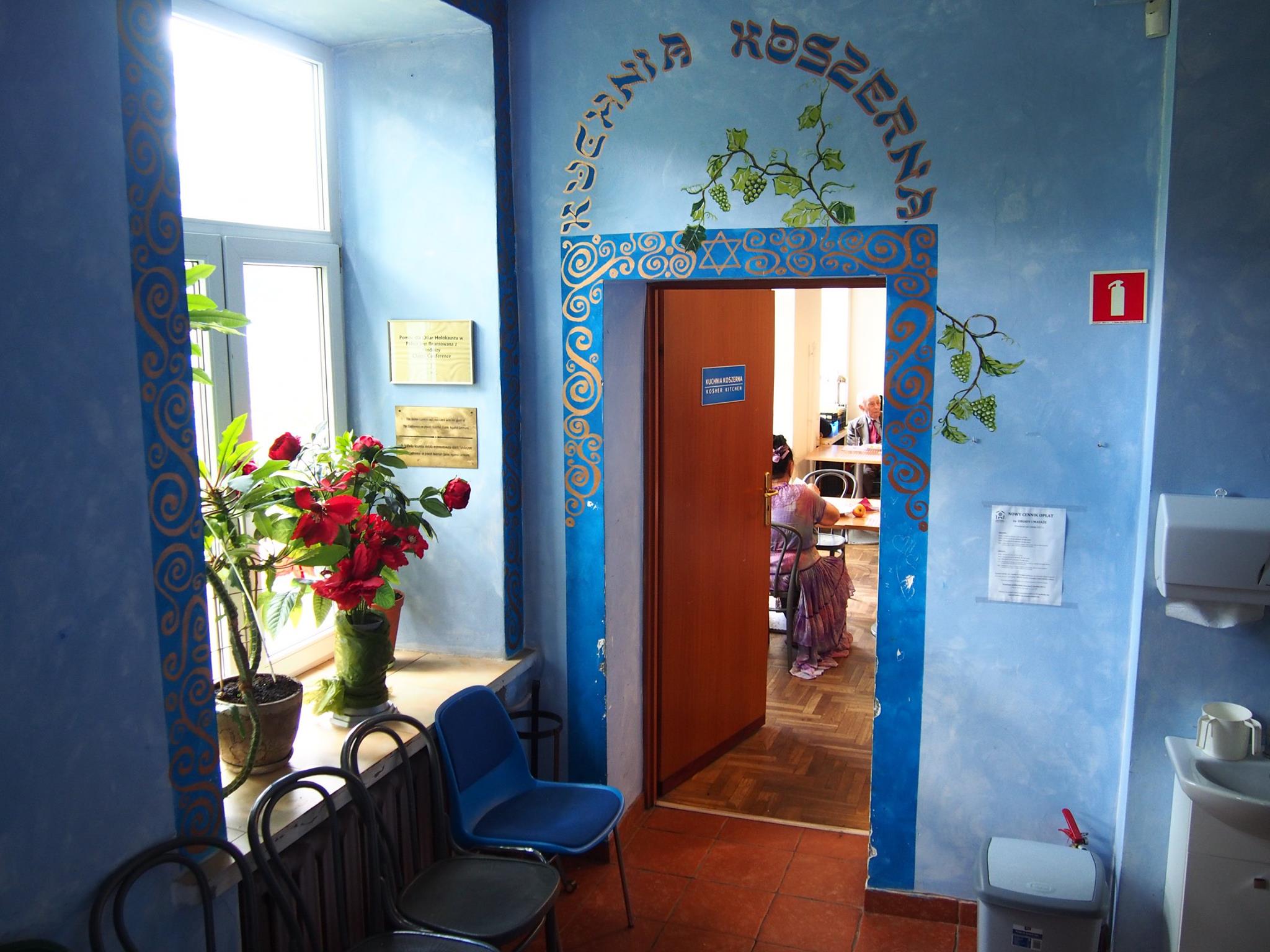
Israeli Embassy Contributes to Summer Program for Children
The Israeli embassy to Lithuania June 12 invited more than 150 children from all over Lithuania to Vilnius where they saw a film at a movie theater, visited the President’s Office and ate pizza and ice cream near the White Bridge in the Lithuanian capital. The Israeli embassy contributed in this way to the Give a Child a Summer campaign. Ambassador Amir Maimon said projects to help children from at-risk families are important and the embassy follows Jewish traditions of caring for the community and neighbors. This is the second time the Israeli embassy has financed a holiday for children from families receiving social welfare support. Last year the embassy was part of the For a Safe Lithuania campaign initiated by president Dalia Grybauskaitė.
Vilna Gaon to Screen Defiance
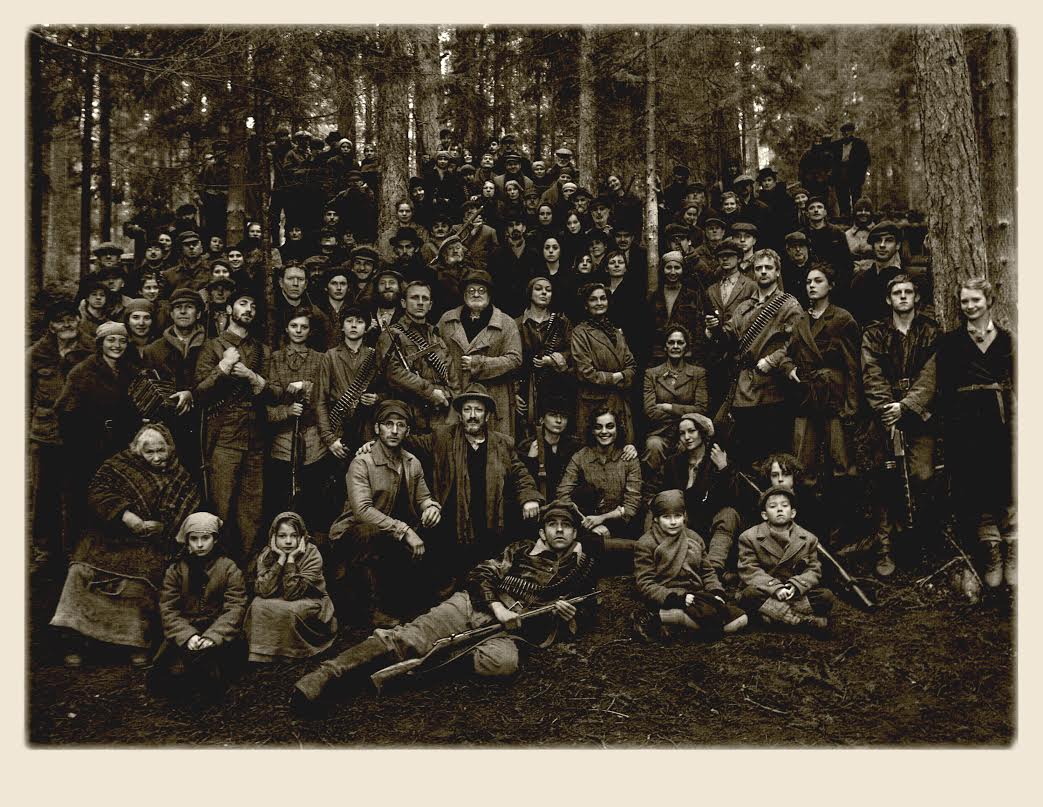
The Tolerance Center of the Vilna Gaon State Jewish Museum invites the public to come watch the film Defiance (2008) made in Lithuania and based on historical facts, and to meet some of the Lithuanian actors in the film as well as meet attorney Leora Tec, the daughter of the author of the book upon which the screenplay was based, Nechama Tec.
The film, slightly over two hours, tells the story of the Bielski brothers and the partisan group they founded in Belarus near the Lithuanian border. Their struggle for life ended up saving around 1,200 Jews from the ghettos in Belarus and Vilnius.
Defiance is one of the highest-budget and most successful films ever made in Lithuania. The main roles were filled by English “James Bond” actor Daniel Craig as Tuvia Bielski, Liev Schreiber as Zus Bielski, Jamie Bell as Asael Bielski, and George MacKay as Aron Bielski. The Lithuanian side of the cast comprises a constellation of stars from the dramatic and musical stage as well and includes Leonardas Pobedonoscevas, Antanas Šurna, Rimatė Valiukaitė, Dalius Mertinas, Edita Užaitė, Dalia Michelevičiūtė and Vidas Petkevičius, among others.
The screening and meeting will take place at 5:30 P.M. on Wednesday, June 21, 2017, at the Tolerance Center located at Naugarduko street no. 10/2 in Vilnius. The film will be screened in the Lithuanian language and the discussion to follow will be in Lithuanian and English. The event is free to the public and members of the film crew, actors, extras and others involved in the making of Defiance are highly encouraged to come.
Israeli Citizen Borisas Joselovich Comments on Draft Amendments to Citizenship Law
Borisas Joselovich has sent Lithuanian Jewish Community chairwoman Faina Kukliansky a letter from Israel in Lithuanian. A translation follows.
Your thoughts in the text published on the issue of proposed draft amendments to the law of the Republic of Lithuania on citizenship about returning citizenship to former Jewish citizens of Lithuania who left for Israel after 1990 exactly mirror my own personal thoughts and probably the position and hopes of a large number of Litvaks living in Israel.
Spain, which deported the entire Jewish community 500 years ago, adopted a fair and honest decision to return national citizenship to Jews exiled from Spain. This decision by the Spanish government has been carried out successfully for several years now.
Lithuania, in whose territory almost the entire Jewish community was physically exterminated, is simply morally obligated to take the exact same step towards those several thousand descendants of murdered Jews living in Israel, and to return them the citizenship taken away from them earlier.
You are doing very important work in restoring what was for centuries the natural Jewish element of Lithuanian society to the place it belongs, and so I wish you the highest success in achieving your goals in this difficult mission.
Respectfully,
Borisas Joselovich
(Israeli citizen since 1993)
Jewish Deportations Just as Painful as Lithuanian Deportations, Forgotten by Lithuanians

About 1.3% of members of the Lithuanian Jewish community were deported to the Soviet Union in 1941. This percentage of deportations is the highest for any ethnic group in Lithuania. The deportations failed, however, to extinguish Jewish nationalism, and Zionist groups operated underground, organizing Hebrew education and exerting all efforts to allow Jews to leave for Palestine. According to Jewish historiography, in June of 1941 alone about 3,000 Jewish activists from the right and the left and Jewish owners of large industrial concerns and factories were deported. It is a great shame Lithuanian society today has almost no understanding of these deportations, or has chosen to ignore them, designating deportation an exclusively ethnic Lithuanian tragedy.
Historian Solomon Atamuk found there were 16 Jewish daily newspapers, 30 weeklies and 13 intermittent periodicals along with about 20 collections of literature published in Lithuania before World War II. After the June 14, 1940, ultimatum by the Soviet Union to Lithuania and the occupation which quickly followed, the Jewish community bore the brunt of social and cultural repressions. All leftist and rightist Jewish newspapers were shut down. Even Folksblat, popular among Communists and the organ of the Jewish People’s Party, was banned. Beyond the ban on the Jewish newspapers, editors of Jewish publications were fired and the new regime undertook a complete reorganization and shutting down of existing academic institutions. YIVO was made to heel, employees were fired, various books, newspapers and collections were seized. Opportunities to read in Hebrew were systematically lessened and Jewish libraries were shut down.
Fayerlakh Group Competes at St. Petersburg International Music and Art Festival-Contest
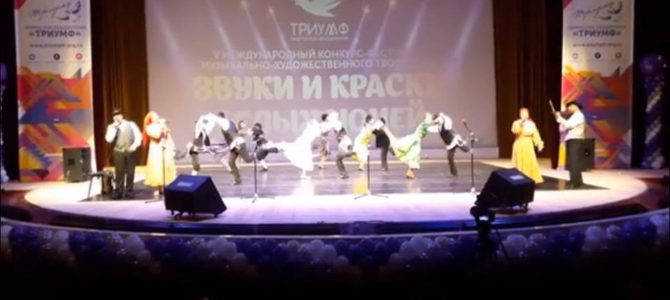
The Fayerlakh Jewish song and dance ensemble performed at the White Nights music and art festival-contest in St. Petersburg, Russia, from June 8 to 11, 2017.
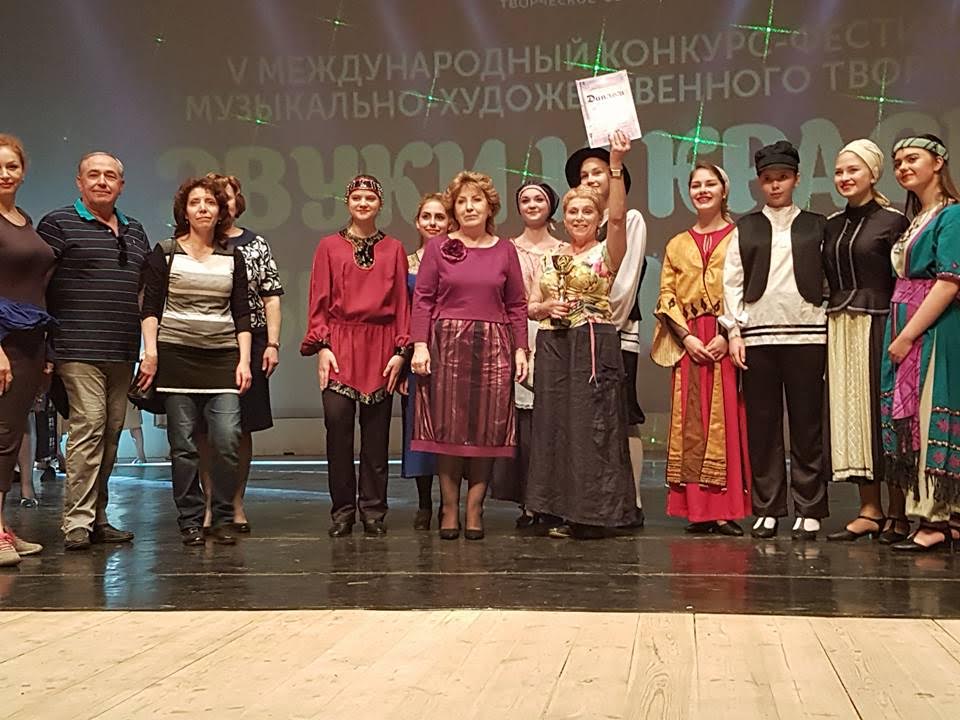
Fayerlakh competed in the category Folk Ensembles and Folk Songs, along with 65 other contestants. Fifty-nine finalists competed in the final concert, where Fayerlakh took first place. The Lithuanian Jewish group was also presented a gift certificate for high art in celebrating Jewish culture and traditions, which they will be able to use at the next festival-contest.
Their performances at such festivals not only demonstrate the ensemble’s excellence and professionalism, but also stimulates tolerance between peoples and faiths. Besides presenting Jewish culture, Fayerlakh also presents multicultural Lithuania on the international stage. These sorts of tours and performances abroad also build real solidarity among members of the song and dance collective, crucial for further creative work.
The competition also provided members of the collective the opportunity to see one of the world’s most beautiful cities, an important education inspiring and expanding the horizons of younger members of the ensemble. Fayerlakh performed a small concert at the Choral Synagogue in St. Petersburg.
Director Larisa Vyšniauskienė and the entire Fayerlakh collective thank the Lithuanian Jewish Community, the Goodwill Foundation and the Joint Distribution Committee for their full support.

